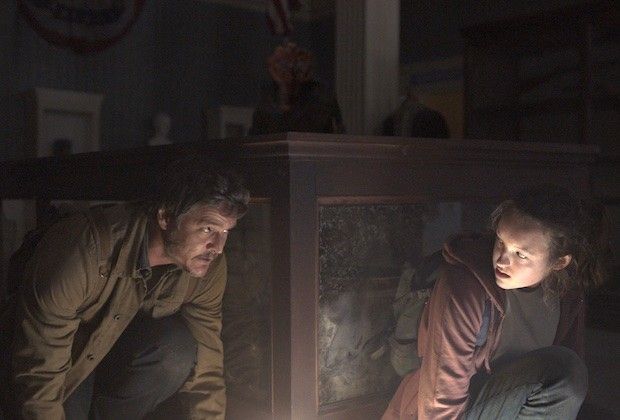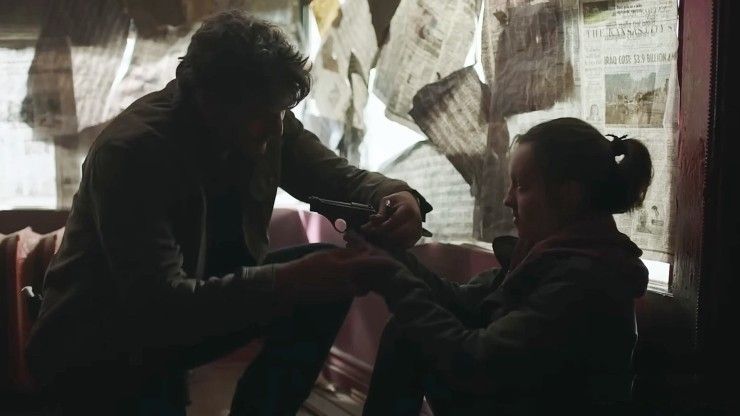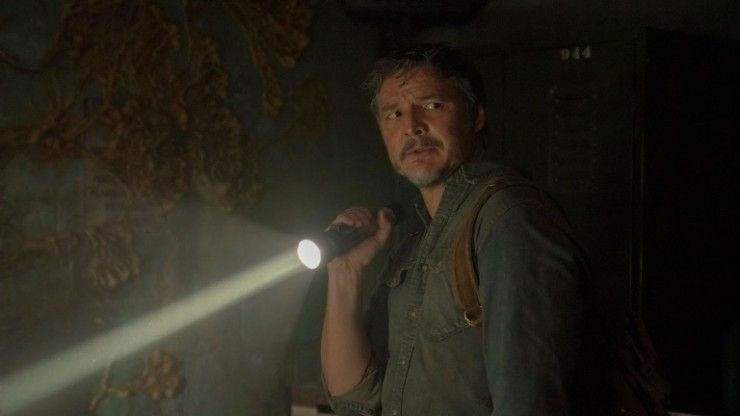
Video game adaptations are notoriously hard to nail, but why?
If you’re like me, then you are probably waiting with anticipation for this year’s biggest video game adaptation. No, I’m not talking about the upcoming animated The Super Mario Bros. Movie. Instead, I’m talking about HBO’s newest limited series, The Last of Us.
The Sony PlayStation title was released in 2013 and introduced players to a man charged with shepherding a teenage girl across the pandemic-ravaged US, where infected individuals are reduced to a mindless, almost zombie-like state of existence. What could have been another zombie game instead turned into a character study that made us weep numerous times.
With a great story that seems easy to adapt to the screen, many fans are rightfully nervous.
Video game adaptations seem to be cursed. Can you think of a good video game adaptation since studios released that was an untapped source in the genre? None pop into my mind because the adaptations either follow the source material too faithfully or diverge from the game’s themes and story completely, losing the magic that made the story and game successful.
The Last of Us game creator Neil Druckmann and the show creator Craig Mazin broke down why many video game adaptations fail to the New Yorker, and what their strategy is for creating a faithful adaptation that still works for all viewers who are engaging with this story.
Why do video game adaptations fail?
Hollywood’s relationship with video games has been misguided since the industry’s first attempt at a film adaptation.
The video game genre in film has been plagued by two-dimensional characters, in-jokes that alienate mainstream audiences, and nonsensical exposition dumps that are boring and confusing. Hollywood struggled to find the balance between catering to diehard fans and introducing new viewers to the story.
Truthfully, many video games don’t work in film or TV. Audiences don’t want to see gameplay on screen.
The Assassin’s Creed franchise, for example, is well-known and loved for its sophisticated stealth mechanics and lush historical settings. It is hard to replicate gameplay that requires the players to logically maneuver through a difficult setting in film when the audience has limited immersion in that world.
Doom also fell into the trap by using a similar point of view that was in the game to put the audience into the perspective that made the game famous. For five minutes, the action unfolded through the protagonist’s eyes, with only his hands and weapons visible at the bottom of the frame, as he made his way through his enemies.
It was dizzying and unfortunately dull. It was hard to understand what was going on, which made many new viewers disinterested in a world that seems disinterested in showing off its world and main character.
“That’s the thing,” Mazin said. “If what the property is giving you is a name and a built-in thing, you’re basically setting yourself up for disaster because the fans will be, like, ‘Where’s my fucking thing?’ and everybody else will be, like, ‘What’s Doom?’ And then you’re in trouble.”
Another contributing factor to why video game adaptations tend to fail is that they are derivative of movies. Halo borrows from Alien, Tomb Raider is a gender-flipped Indiana Jones. When these stories are returned to the format where the formulas originated, it feels tired and repetitive.
The last factor is that there are certain video games where the experiences couldn’t be reproduced outside the games. Many open-world games like Skyrim and Elder Scrolls allow players to wander and create their own stories. It’s almost impossible to translate these open-world concepts into a narrative story that will please everyone.

Why is TV the format for video games
Gameplays are notoriously long.
The Last of Us clocks in at nearly fifteen hours, which makes it hard to condense a detailed story and world in two or three hours. Druckmann understood that a film adaptation of his story was impossible. It didn’t help either that Screen Gems, a studio best known for the Resident Evil film franchise, wanted to change the aesthetics of The Last of Us in favor of a bigger and sexier story.
After meeting with Mazin, the two creators knew that The Last of Us would never succeed as a movie, but it could do well as a limited series.
The key to the emotional story of The Last of Us is that the player has the same relationship with Ellie as Joel does. We experience what makes Joel who he is, and we learn to work with and protect Ellie along with him. Right when we are at our most protective and emotional state, the story switches to make us focus on Ellie and her vulnerability. The exploration of The Last of Us is this: “How far will the unconditional love a parent feels for their child go?”
As a TV show, the story has time to develop this kinship between the characters and the audience, showing us what makes their characters strong and weak, and gives us time to develop a parasocial relationship with them. TV shows still don’t allow video games to be copied and pasted into the format, but it does give the story room to breathe and the time to hook the audience into the themes Druckmann and Mazin want to tackle.

How to Adapt a Video Game for TV
As I said before, the TV format doesn’t allow video games to be transferred without some changes. Some changes had to be made to allow the story to work on the screen.
Druckmann found freedom in unplugging from Joel’s and Ellie’s perspectives, an element that the game relied on for the sake of immersion. The show ventured beyond America and moved freely through time, showing characters’ lives before disaster struck, an element the game pokes at when players find notes scattered throughout different locations.
The shift to television also allowed for a different approach to violence. The game’s brutality was always distressing rather than titillating, but players have already been desensitized to the violence of most video games.
“When you’re playing a section, you’re killing people, and when you die you get sent back to the checkpoint. All those people are back, moving around in the same way,” Mazin said. In the show, these encounters would have to carry more weight to feel grounded in a familiar reality. “Watching a person die, I think, ought to be much different than watching pixels die,” Mazin added.

Joel, played by Pedro Pascal, is no longer the superhuman he is in the game. Instead, life would take a toll on his body. “So, he’s hard of hearing on one side because of a gunshot. His knees hurt every time he stands up,” Druckmann said.
Druckmann and Mazin strived to create something grounded and realistic. While Joel’s skill is evading bullets, watching a character duck and shoot and never face danger is boring. Replicating action from video games is a bad move for television.
Instead, Druckmann and Mazin had to find new and interesting ways to put Joel and Ellie, played by Bella Ramsey, in danger that kept audiences on the edge of their seats. Even if fans know where the story goes, the action has to hook the viewer by tugging on our anticipation.
The Last of Us stays close to its source material because the source material always puts the narrative first. While the show is not a scene-by-scene adaptation of the video game, it found new ways to approach the world and explore the story of characters that join the journey and shape the lives of the main characters.
I am excited to watch Bill’s (Nick Offerman) relationship with his partner Frank and see Ellie’s and Riley’s (Storm Reid) tragic friendship, story elements that were excluded from the game's original game play for the sake of a linear story. While these sub-plots are not necessary to the story, they do shape the characters and will help audiences empathize with them. It will be exciting to see these small details fleshed out and humanize these characters even more.
The Last of Us premieres on HBO Max on Jan. 15th, 2023.
Why do you think video game adaptations often fail? Do you think that The Last of Us will succeed? Let us know why in the comments below!
Your Comment
1 Comment
Great article. I think to make the show a success the producers, and screenwriters have to come up with interesting backstories about Ellie, and captivate the audience, especially new ones to bond with her character at least within the first 5 episodes. The narrative is carried mostly by Ellie more than any other character within the game.
January 14, 2023 at 5:30AM